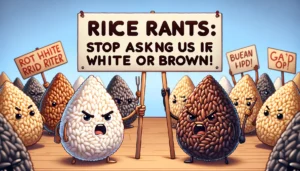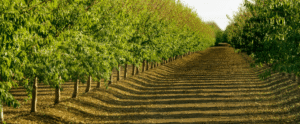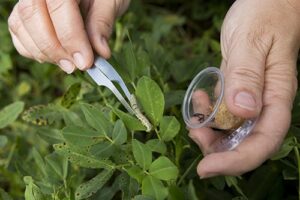BP Bunge Bioenergia’s Bio-fueled Bonanza
The Rise of the Bacteria Brigade
Since its creation three years ago, BP Bunge Bioenergia has been revolutionizing the world of sugarcane farming with sustainable field management solutions. Forget superheroes—meet the Bacteria Brigade! These microscopic marvels are transforming agriculture faster than you can say “Nitrospirillum amazonense.”
BP Bunge is on a mission to replace mineral fertilizers by 2025, and they’re doing it with the help of some tiny but mighty allies. Nitrospirillum amazonense and Azospirillum brasilense are the dynamic duo leading the charge. Picture these bacteria in tiny capes, zipping around sugarcane roots, fixing nitrogen and boosting productivity like never before. Who needs superheroes when you’ve got superbugs?
Composting: The New Gourmet Trend
Composting at BP Bunge is not just about turning waste into gold—it’s about creating the ultimate gourmet experience for sugarcane fields. Imagine a composting chef, mixing filter cake and bagasse ash with the precision of a Michelin-starred cook. The result? A 35% moist, crumbly compost that’s the talk of the agricultural world.
But wait, there’s more! To ensure the compost is packed with nutrients, BP Bunge adds a secret ingredient—manure. Yes, cattle and chicken manure are the unsung heroes of this composting extravaganza. It’s like adding a dash of spice to your favorite dish, elevating the compost to new heights of productivity.
Vinasse: The Gatorade for Plants
Vinasse, the potassium-rich byproduct, is the ultimate energy drink for sugarcane. Think of it as Gatorade for plants, keeping them hydrated and packed with essential nutrients. Vinasse is making waves in the fields, providing the perfect balance of potassium and nitrogen. It’s the hydration revolution that’s sweeping the sugarcane nation!
From Ashes to Agricultural Glory
Burning bagasse for bioenergy and using the resulting ashes for compost is the ultimate zero-waste strategy. It’s the agricultural equivalent of turning ashes into riches. BP Bunge is setting the standard for sustainable farming, proving that even the tiniest byproducts can make a big difference.
The Nitrogen Fixation Phenomenon
Using bacteria for nitrogen fixation is like hiring personal trainers for sugarcane plants. These bacteria are the fitness gurus of the plant world, helping sugarcane grow stronger, faster, and healthier. With Nitrospirillum amazonense and Azospirillum brasilense at the helm, sugarcane fields are achieving new levels of productivity.
The Potassium Paradox
BP Bunge is tackling the potassium paradox head-on. By reducing the use of potassium chloride, they’re solving one of agriculture’s biggest challenges. It’s like cutting back on salty snacks for a healthier diet—everyone benefits, from the plants to the environment.
Nutrient Nirvana
The composting process at BP Bunge is leading to nutrient nirvana for sugarcane fields. By balancing nutrients with precision, they’re achieving agricultural enlightenment, one compost pile at a time. It’s the ultimate path to productivity and sustainability.
Bioenergy Boom
BP Bunge’s sustainable practices are fueling a bioenergy boom. It’s a green revolution with a Brazilian twist, transforming sugarcane farming into a beacon of sustainability. Samba your way to a brighter, greener future with BP Bunge!
Clean and Green
With a focus on cleaner and regenerative agriculture, BP Bunge is making the world a better place, one sugarcane field at a time. It’s the green thumb version of saving the planet, proving that sustainability and productivity can go hand in hand.
Conclusion: The Future is Bright and Bio-fueled
BP Bunge Bioenergia is leading the charge in sustainable sugarcane farming. With innovative solutions and a commitment to green practices, they’re transforming agriculture for the better. The future is bright, bio-fueled, and filled with the promise of cleaner, greener fields. So, raise a glass of sugarcane juice to BP Bunge and their bio-fueled bonanza. Here’s to a sustainable future, one bacteria at a time.
Auf Wiedersehen
This story is a delightful collaboration between two sentient beings—a cowboy and a farmer. Any resemblance to real events or actual bacteria is purely coincidental, though highly probable given the current agricultural trends. No AI were harmed in the writing of this satire, and any compost mentioned is purely fictional, though it might exist in your local sugarcane field. Enjoy your sustainable sugarcane, save the planet, and remember to laugh along the way. Auf Wiedersehen!
Helpful Tips for Farmers
Leveraging BP Bunge Bioenergia’s Sustainable Sugarcane Solutions
1. Bacteria’s Big Break
BP Bunge Bioenergia is giving bacteria their big break in agriculture. Nitrospirillum amazonense and Azospirillum brasilense are the new superstars of sugarcane fields. These bacteria, developed by Embrapa, assist in nitrogen fixation, promoting the growth and development of plants, resulting in increased productivity. Incorporating these bacteria into your farming practices can reduce the reliance on chemical fertilizers, leading to healthier, more sustainable crops.
Tip: Start with small test plots to see how these bacteria affect your crop yield and soil health before expanding their use across your entire farm.
2. Composting for Champions
Mixing filter cake and bagasse ash to create organomineral fertilizers is an innovative practice. These materials, byproducts of sugarcane processing, when combined, create a nutrient-rich compost with a perfect 35% moisture content. This compost not only recycles waste but also improves soil health and crop productivity.
Tip: Invest in proper composting equipment and processes to ensure your compost is well-balanced and effective. Regularly test your compost for nutrient content and adjust your inputs accordingly.
3. Manure Madness
Cattle and chicken manure are essential components of BP Bunge’s composting success. These manures add vital nutrients to the compost, enhancing its effectiveness. Manure is a cost-effective and sustainable way to enrich your soil and boost crop yields.
Tip: Source manure from reliable suppliers to ensure it’s free from contaminants. Properly age and process the manure to kill any pathogens and weed seeds before applying it to your fields.
4. Vinasse Victory
Vinasse, a potassium-rich byproduct of ethanol production, is like Gatorade for plants. It hydrates and provides essential nutrients, reducing the need for chemical fertilizers. Using vinasse can significantly improve soil fertility and crop health.
Tip: Implement a vinasse application system that ensures even distribution across your fields. Monitor soil potassium levels regularly to avoid over-application, which can lead to nutrient imbalances.
5. Filter Cake Frenzy
Filter cake, a byproduct of sugarcane juice filtration, is making a comeback as compost. This organic material is rich in nutrients and enhances soil structure and fertility. Reusing filter cake in your fields is a great way to recycle waste and improve crop productivity.
Tip: Mix filter cake with other organic materials like bagasse ash and manure to create a balanced compost. Apply it during the planting season to give your crops a nutrient boost right from the start.
6. Fertilizer Fixation
Replacing mineral fertilizers with bioinputs is a healthier and more sustainable approach. Bioinputs like bacteria and compost provide essential nutrients to the soil, promoting better crop growth and reducing the environmental impact of farming.
Tip: Transition gradually to bioinputs, monitoring their effects on your crops and soil. Consult with agricultural experts to develop a balanced fertilization plan that meets your farm’s specific needs.
7. The Great Nitrogen Switch
Using bacteria for nitrogen fixation is like hiring a personal trainer for your plants. These bacteria convert atmospheric nitrogen into a form that plants can use, reducing the need for synthetic nitrogen fertilizers. This practice improves soil health and crop productivity.
Tip: Incorporate nitrogen-fixing bacteria into your soil through seed inoculation or soil amendments. Monitor your crops’ nitrogen levels to ensure they are getting enough nutrients throughout the growing season.
8. Sugarcane Superheroes
BP Bunge’s sugarcane fields are now filled with “superplants” enriched by bacteria and compost. These enhanced plants are more resilient and productive, leading to higher yields and better quality crops.
Tip: Adopt a holistic approach to soil and plant health, combining bioinputs with good agricultural practices like crop rotation, cover cropping, and proper irrigation.
9. Organic Overdrive
By 2025, BP Bunge aims to have 100% of its planting cycle using biofertilizers. This shift from chemical to organic inputs is driving the company towards a more sustainable and productive future.
Tip: Start incorporating biofertilizers into your farming routine now to get ahead of the curve. Experiment with different types and combinations to find what works best for your soil and crops.
10. Ashes to Riches
Burning bagasse for bioenergy and using the ashes for compost is the ultimate zero-waste strategy. This practice not only generates renewable energy but also creates nutrient-rich compost that enhances soil health.
Tip: If you have access to bagasse and other organic byproducts, consider setting up a small-scale bioenergy and composting operation on your farm. This can help you manage waste and improve soil fertility.
11. Filter Cake Feasts
Standardizing compost yards with filter cake and bagasse ash is like setting up gourmet feasts for the soil. These compost mixtures are rich in nutrients and improve soil structure, leading to healthier, more productive crops.
Tip: Establish a compost yard on your farm where you can mix and manage organic materials. Regularly turn and monitor your compost piles to ensure proper decomposition and nutrient balance.
12. Potassium Paradox
With a significant reduction in potassium chloride use, BP Bunge is solving the potassium paradox. This practice reduces the environmental impact of farming while maintaining soil fertility and crop productivity.
Tip: Use soil tests to monitor potassium levels and adjust your fertilization practices accordingly. Incorporate organic materials like vinasse and compost to maintain a balanced nutrient profile in your soil.
13. Nutrient Nirvana
The balance of nutrients in the composting process is the path to nutrient nirvana for sugarcane fields. Well-balanced compost enhances soil health and crop growth, leading to higher yields and better quality produce.
Tip: Develop a nutrient management plan that includes regular soil testing and balanced compost applications. Adjust your compost recipe based on soil test results to ensure optimal nutrient availability.
14. Bioenergy Boom
BP Bunge’s sustainable practices are leading to a bioenergy boom. This green revolution is transforming agriculture, making it more sustainable and productive.
Tip: Explore opportunities to generate bioenergy on your farm using organic byproducts like bagasse. This can help you reduce waste, generate renewable energy, and create nutrient-rich compost.
15. Clean and Green
The focus on cleaner and regenerative agriculture means BP Bunge is making the world a better place, one sugarcane field at a time. Adopting sustainable practices can lead to a healthier environment and more productive crops.
Tip: Implement regenerative agriculture practices like cover cropping, reduced tillage, and integrated pest management. These practices improve soil health, increase biodiversity, and reduce the environmental impact of farming.
Originally Published at FarmerCowboy.com
2024-06-13 13:03:12
Originally posted 2024-06-15 11:42:48.
Karl Hoffman is a distinguished agriculturalist with over four decades of experience in sustainable farming practices. He holds a Ph.D. in Agronomy from Cornell University and has made significant contributions as a professor at Iowa State University. Hoffman’s groundbreaking research on integrated pest management and soil health has revolutionized modern agriculture. As a respected farm journalist, his column “Field Notes with Karl Hoffman” and his blog “The Modern Farmer” provide insightful, practical advice to a global audience. Hoffman’s work with the USDA and the United Nations FAO has enhanced food security worldwide. His awards include the USDA’s Distinguished Service Award and the World Food Prize, reflecting his profound impact on agriculture and sustainability.





There’s nothing like seeing a country music performance in person. The energy of the crowd, the passion of the artist—it’s unforgettable.